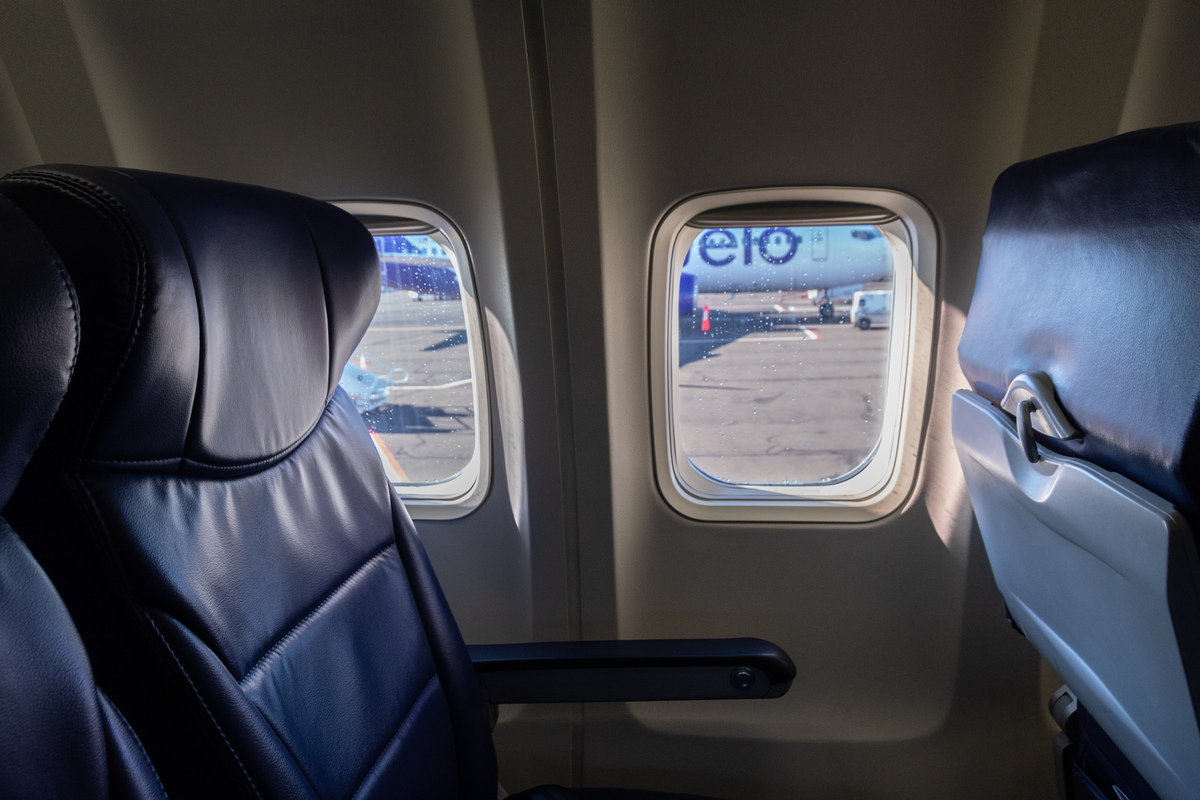East Haven neighbors voice concerns over Tweed Airport expansion 
Residents question Tweed environmental assessment, airport runway extension and terminal addition at a Tuesday meeting.

Zoe Berg, Photo Editor
Over 150 New Haveners voiced concerns at a Tuesday meeting about the Tweed Airport expansion.
The residents met in person and virtually at the Hagaman Library in East Haven, where they expressed their frustration at the recent environmental assessment conducted for the expansion of the Tweed-New Haven Airport. The New Haven Board of Alders approved a 43-year lease between the city and Tweed-New Haven Airport last September. The lease will allow the airport to build a new terminal near East Haven and extend its runway by approximately 1,500 feet within the next 20 years. The Federal Aviation Administration has approved these plans. Airport authorities hired the consulting firm McFarland Johnson, Inc, to conduct an environmental assessment on the proposed expansion. The firm will study the environmental, social and economic consequences of the proposed expansion.
“We know we can move mountains,” said Gabriela Campos, a Morris Cove resident and write-in candidate for the 2021 New Haven mayoral elections. “We want to share what we’ve researched. We’re all regular neighbors like you and want to make sure your voice is heard.”
Campos began the meeting with a presentation on the possible noise and vibrations East Haven neighbors might experience after the Tweed expansion. She mentioned that people had complained about cracks in their homes’ walls and encouraged the meeting attendees to write letters requesting that the airport hire structural engineers to investigate whether vibrations from the airport caused these cracks as part of the environmental assessment.
She also expressed concerns about noise from the airport.
“Mom, it sounds like we’re inside of a tornado,” Campos recalled her son saying.
Lynn Bennett next presented a slideshow about the health complications and air pollution associated with the airport expansion, describing these adverse effects as “going to be more and more of a problem.” Community members voiced their concerns about the “jet fumes and soot” and “black layers” in their yards due to the airport.
Lorena Venegas, a resident of East Haven, spoke next, focusing on the role that wetlands play in protecting the East Haven community from flooding.
“What we do need to appreciate about our town is that we have water everywhere … and it is all interconnected in our town,” Venegas said. “In our town, wetlands are a natural resource.”
According to Venegas, the wetlands are able to hold water, mitigating flooding in the town. However, if an airport terminal were to be built in the wetlands, in an area only a few inches above the water, the water would have to go somewhere else. Venegas worried that by building on the wetlands, Tweed may weaken East Haven’s natural defense against floods.
This is a risk that Tweed has recognized, Venegas noted, but she feared that the measures Tweed has taken to compensate for the loss in wetlands will be insufficient to replace the natural storage the wetlands provide.
“If you build a terminal, where is the water displacement going to go?” Venegas asked. “Are you going to be putting in water holding tanks? … If you displace water, you need to put the water somewhere else. … What’s happening here is that we have a gap of information.”
In addition to the danger posed to humans by the loss of wetlands, Venegas spoke of the wildlife, particularly the endangered species, that reside in the wetlands. According to Venegas, Tweed has yet to study the density or distribution of endangered species in the wetlands.
“We need to put a comma. Hold up. We need to study what is going on here,” Venegas said.
Patrick Nolan spoke last, discussing the economics of Tweed’s expansion and the surrounding assessments.
Nolan described that normally, when public goods are given to the care of private businesses, they have to submit bids, or competitive arguments to the government. However, Nolan said, in the case of Tweed, there was no bid.
“The problem with not having a bid, with not having multiple people come in and talk about it,” Nolan added, “is that you’ve got inefficient use of resources. Monopoly power exists and then poor decisions are made by everybody because profiteering becomes the role.”
According to Nolan, instead of competition or a review examining the externalities — the negative consequences of expansion raised by the community — Tweed received a 43 year lease.
City and airport officials have maintained that they have listened to resident concerns about the airport, noting the $1.7 million in noise mitigation and $1.5 million for traffic safety improvements and environmental restoration efforts built into the Tweed expansion agreement.
“I made it very clear to this neighborhood that I wanted to listen to them — I wanted to learn from them,” Tweed Airport Executive Director Sean Scanlon said last May.
One Connecticut lawmaker, State Representative Joe Zullo (R-99) attended the meeting and pledged to work to “have a dialogue” between residents and city and airport officials.
Tweed-New Haven Airport is one of two airports with regularly scheduled service in Connecticut.







